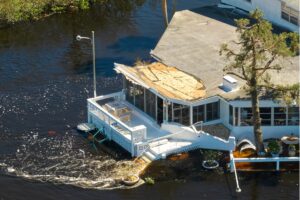At Premier Claims, we believe in empowering policyholders with knowledge. One way to do this is by debunking the public adjuster myths that surround the insurance industry. One common misconception we encounter is the belief that public adjusters delay claims, leading people to believe that hiring a public adjuster will negatively impact their claim.
The Truth Behind the Myth
Insurance claims inherently involve a series of steps, documentation, assessments, and negotiations. The complexities of the claim itself and the policies and procedures of the insurance carrier primarily dictate the duration of this process however, our team of public adjusters at Premier Claims possess a deep understanding of these procedures. Their expertise streamlines the entire process, ensuring they effectively navigate each step, avoiding delays.
Understanding the Public Adjuster’s Role
A public adjuster’s fundamental responsibility is to advocate for you, the policyholder. Their expertise lies in comprehending the intricate language of insurance policies, assessing the damage thoroughly, and negotiating with the insurance carrier on your behalf. However, contrary to the myth, their involvement expedites the process by:
Accurate Assessment
Public adjusters meticulously evaluate the damage, aiming to account for all aspects of the claim. Their precise documentation prevents back-and-forth with the insurance company, saving time. Additionally, this detailed approach strengthens the foundation for a smooth negotiation process.
Negotiation Expertise
Public adjusters are skilled negotiators. They engage with the insurance carrier, presenting a well-documented claim and advocating for a fair settlement promptly. Furthermore, their experience often leads to swifter resolutions.
Policy Knowledge
Understanding the intricacies of insurance policies is crucial. Therefore, public adjusters actively interpret policy language, aiming to maximize every entitlement and coverage benefit, thus preventing unnecessary delays in processing or delaying a claim due to misunderstandings.
It’s important to debunk the misconception that public adjusters delay claims, ensuring accurate information prevails in the industry. Gain valuable insights from Dana Langfeldt, a seasoned Public Adjuster at Premier Claims, as she dives deeper into the crucial support public adjusters provide to policyholders. Understanding that the public adjuster doesn’t negatively impact the claims processing timeline is crucial. Instead, they actively expedite the process, fighting on your behalf, to try to secure a rightful settlement.




